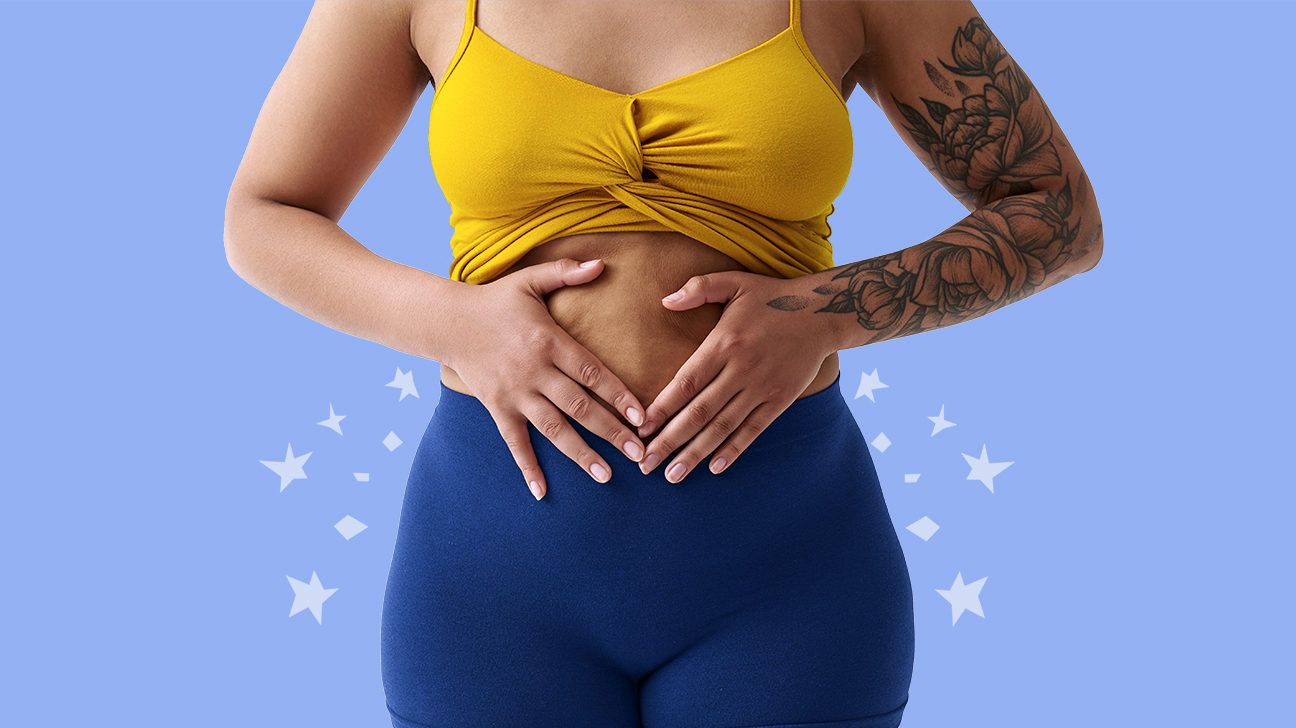- Hormone changes around your period can increase intestinal cramping, which also increases gas.
- When gut bacteria release sulfur, it can make farts extra stinky.
- Hormone-induced binge eating contributes to extra gas and bloating.
- Drinking extra water, exercising, and carefully maintaining a healthy (and less gas-inducing) diet can reduce period farts.
When you feel yourself bloating like a bottle rocket ready to explode, you know your period isn’t far behind. Unfortunately, the rocket has to go off, and when it does, things can get ugly — and smelly.
The next time you feel one of those rocket fuel farts coming on, remind yourself that you’re human, and everybody farts. In a 2014 survey of 156 women, 73 percent reported GI symptoms like diarrhea, bloating, and abdominal pain before or during their period.
Since there’s nothing like punctuating your exit from a room with the fart you’ve been holding in for an hour, we took a look at what causes period farts, how to stop them, and — when all else fails — how to control that stanky stank.
If you’ve ever suspected you’re gassier than usual during your period, you’re right! As with most other changes that come with that time of the month, you can blame it on your hormones.
Estrogen and progesterone do a number on your small intestine, causing extra gas, constipation, and sometimes diarrhea. When you’re dealing with constipation, the longer the poop sits in your guts, the more gas and pressure build up. And we don’t need to go into the details of diarrhea for you to know that it comes with some unpleasant gas.
Your hormones also cause your uterus to release fatty acids called prostaglandins that affect your gut. They stimulate your uterus to contract so it can shed its lining each month, so they’re vital to your period.
But when there are too many prostaglandins, they can migrate to other places — like your bowels. Then, guess what? Extra contractions cause more gas.
Having more gas during your period seems bad enough, but period farts also smell (and feel) worse than usual. We’re talking about the fires of hell coming out of your nether regions. They can only be compared to the flaming burn of spicy taco farts.
In general, farts consist of carbon dioxide, hydrogen, or methane, which are relatively low in odor. Changes in your gut bacteria increase sulfur, and sulfur fuels the melt-your-face-off qualities of a period fart. Extra sulfur comes, in part, from hormones, but food cravings play a big role in fart fragrance too.
Changes in progesterone levels might have you eating more chocolate, refined sugars, soda, high fat foods, and dairy products (yes, the ice cream that gets you through those emotional swings). All those foods change the anatomy of your farts — and not for the better.
Constipation also adds to the stench. The longer your poop stays in your bowels, the more fragrant the poop and the accompanying farts will be.
There are ways to cool the rocket fuel, but you’re still going to experience some gas. If you want to keep the odor and frequency down, we have a few suggestions:
- Watch the bingeing. Ice cream and doughnuts may feel good going down, but you’re not going to like it when they come out the other end. Overstuffing yourself can slow your digestion and make gas worse. Try to eat small, regularly spaced meals to prevent a gut (and gas) overload.
- Slow down on gassy foods. Processed snacks aren’t the only foods that can increase gas. Plenty of healthy, high fiber foods like cabbage, broccoli, and brussels sprouts can cause you to toot more than Thomas the Tank Engine. You don’t want or need to cut them out of your diet entirely, but be aware of them during your period.
- Take your time. Mealtime is not a race. Slow down and give your gut a chance to keep up.
- Exercise regularly. Exercise keeps your bowels moving and prevents constipation. That means the gas keeps moving, too, so there’s no painful (and stinky) bloating.
- Drink, drink, drink. Extra liquids, especially water (not alcohol or caffeinated beverages), give your guts a fighting chance by improving your digestion.
- Give probiotics a try. Probiotics can help you maintain a balance of healthy gut bacteria, and research suggests they can reduce gas.
Period farts are a real thing, and they happen to everyone. Look on the bright side: Gas may be an issue one month but not the next. Periods are predictable and unpredictable at the same time.
Small changes to your routine can keep them under wraps. If they’re getting out of control, either get out of the room or step into the biggest group you can find so you can blame the stench on someone else. If you walk away with confidence and a smile, no one will know it was you.


